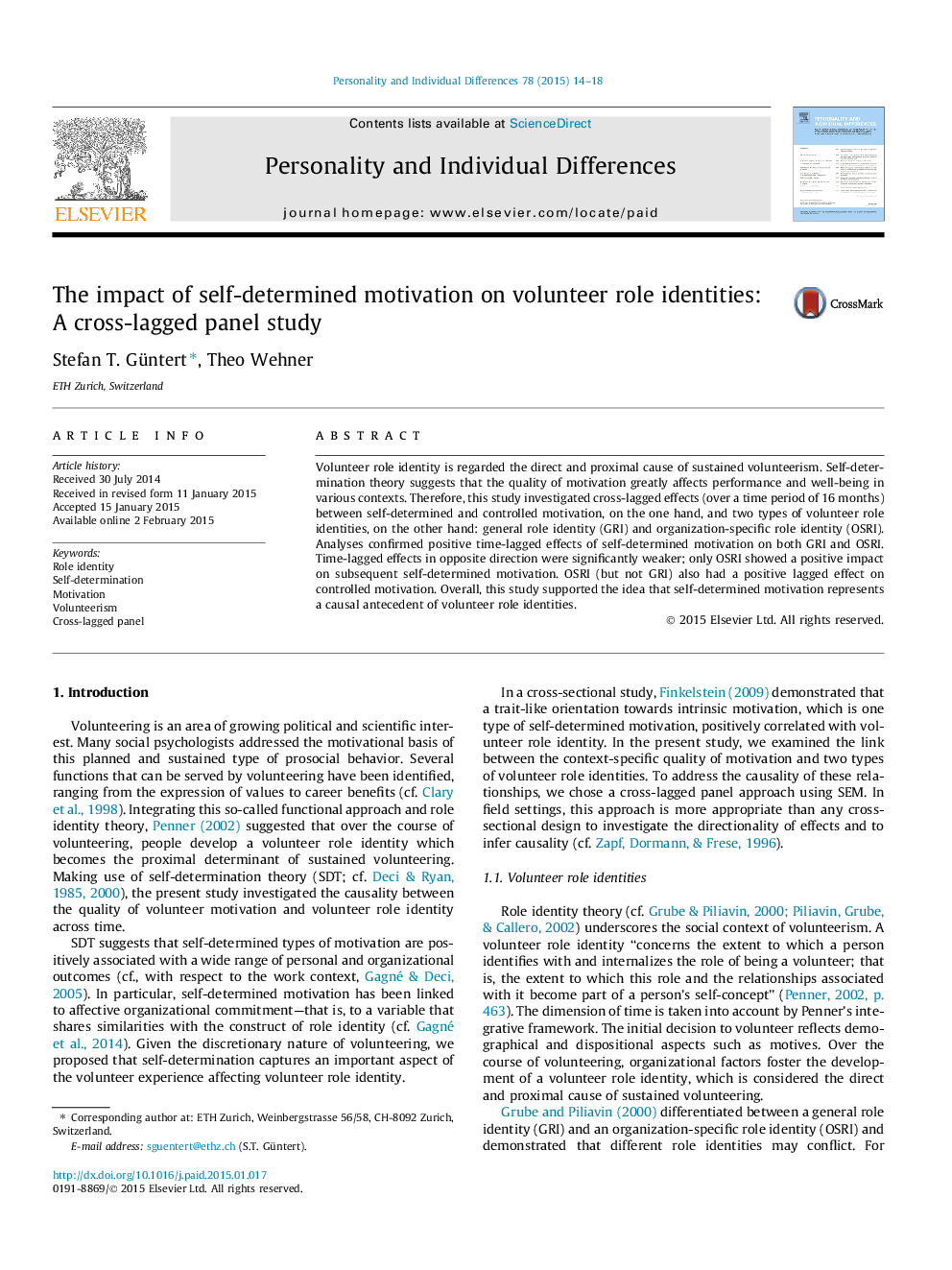| Article ID | Journal | Published Year | Pages | File Type |
|---|---|---|---|---|
| 890172 | Personality and Individual Differences | 2015 | 5 Pages |
•We examine the causality between quality of motivation and volunteer role identity.•General (GRI) and organization-specific role identity (OSRI) are differentiated.•Self-determined motivation shows positive lagged effects on both GRI and OSRI.•OSRI (not GRI) shows a significantly weaker lagged effect in opposite direction.•Furthermore, OSRI (not GRI) also shows a lagged effect on controlled motivation.
Volunteer role identity is regarded the direct and proximal cause of sustained volunteerism. Self-determination theory suggests that the quality of motivation greatly affects performance and well-being in various contexts. Therefore, this study investigated cross-lagged effects (over a time period of 16 months) between self-determined and controlled motivation, on the one hand, and two types of volunteer role identities, on the other hand: general role identity (GRI) and organization-specific role identity (OSRI). Analyses confirmed positive time-lagged effects of self-determined motivation on both GRI and OSRI. Time-lagged effects in opposite direction were significantly weaker; only OSRI showed a positive impact on subsequent self-determined motivation. OSRI (but not GRI) also had a positive lagged effect on controlled motivation. Overall, this study supported the idea that self-determined motivation represents a causal antecedent of volunteer role identities.
Graphical abstractFigure optionsDownload full-size imageDownload as PowerPoint slide
